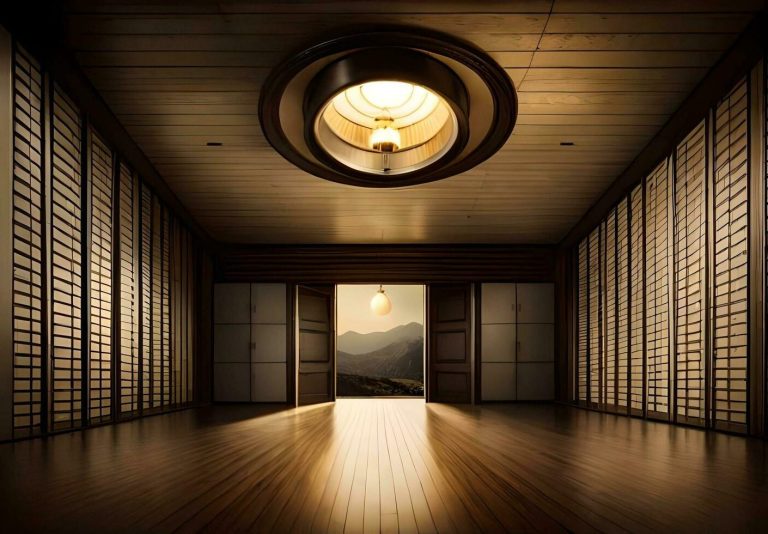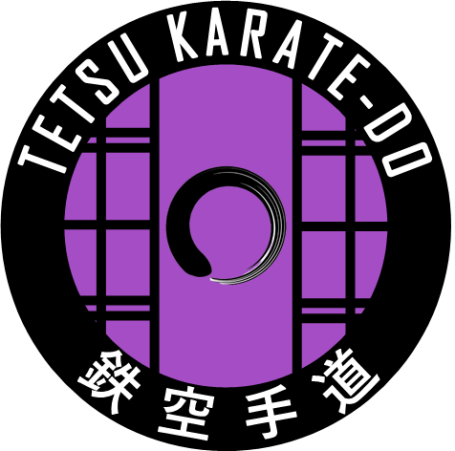Discover the Guiding Principles of Tetsu Karate-Do
At Tetsu Karate-Do, we believe that Karate is not just a hobby, it is a way of life. The guiding principle of the club are based on traditional Japanese values and all students are encouraged to live by these values both in and out of the dojo.
我慢
Gaman
Show emotional maturity and self-control when faced with challenges.
Always preserve your dignity during tough times
Remember to be patient, resilient, and understanding when dealing with adversity
侘寂
Wabi-Sabi
Embrace imperfection and recognise the beauty in every flaw. Recognise that nothing in life is perfect, including yourself and others
Instead of striving for flawlessness, find joy in the imperfections that make life unique and interesting
守破離
Shu-Ha-Ri
Shu: Learn the basics by following the teachings of a competent instructor
Ha: Start experimenting, learn from others, and integrate the knowledge into practice
Ri: Focus on innovation and apply your knowledge to a variety of different situations
改善
Kaizen
Always seek to improve in all areas of your life. Even small daily efforts will add up and make a big difference over time.
Simply put, it is having the mindset of continuous development
桜梅桃李
Oubaitori
Compare yourself to who you were yesterday, not to who someone else is today
Everyone has a unique path and timeline
Focus on your own progress, rather than measuring yourself against others
See below for more information on each of these principles

我慢
Gaman
Gaman is a profound Japanese concept that embodies the spirit of enduring the seemingly unbearable with patience and dignity. This principle is deeply rooted in Japanese culture and is often reflected in various aspects of life, including martial arts like karate.
In the context of karate, gaman is a cornerstone of the discipline. It emphasizes the importance of perseverance, self-control, and mental fortitude. Practitioners are taught to push through physical and mental challenges, whether it's mastering a difficult technique, enduring rigorous training sessions, or facing a formidable opponent. This relentless pursuit of improvement and resilience helps martial artists develop a strong inner strength and a never-give-up attitude. The practice of gaman in karate not only enhances physical abilities but also cultivates a resilient mindset that can be applied to all areas of life.
In everyday life, gaman teaches us to face difficulties with grace and patience. It encourages us to remain calm and composed in the face of adversity, whether it's dealing with personal setbacks, professional challenges, or unexpected life events. By embracing gaman, individuals learn to endure hardships without complaint, maintaining their dignity and composure. This mindset fosters a sense of inner peace and resilience, allowing people to navigate life's challenges with a sense of strength and purpose.
Ultimately, gaman is about finding strength in adversity and maintaining a positive outlook, even when faced with seemingly insurmountable obstacles. It is a reminder that enduring hardships with patience and dignity can lead to personal growth, resilience, and a deeper understanding of oneself.
侘寂
Wabi-Sabi
Wabi-Sabi is a profound Japanese aesthetic that celebrates the beauty in imperfection, transience, and simplicity. Well embedded in Japanese culture, this philosophy can be applied to various aspects of life, including martial arts like karate.
In karate, Wabi-Sabi encourages practitioners to value the journey of learning and growth, rather than striving for unattainable perfection. It teaches martial artists to find beauty in their progress, even in their mistakes and imperfections. This mindset helps practitioners embrace their unique path, understanding that each step, whether successful or not, contributes to their overall development. By focusing on the process rather than the end result, karate practitioners can cultivate a deeper sense of fulfilment and resilience.
In everyday life, Wabi-Sabi reminds us to accept and appreciate the imperfect and transient nature of our existence. It encourages us to find beauty in simplicity and to embrace the natural flow of life, with all its ups and downs. This philosophy helps us let go of the constant pursuit of perfection and instead find contentment in the present moment. By embracing Wabi-Sabi, we can develop a more mindful and authentic way of living, appreciating the small, often overlooked details that make life unique and beautiful.
Ultimately, Wabi-Sabi teaches us to see the world through a lens of acceptance and appreciation, finding beauty in the imperfect and the fleeting. This mindset fosters a sense of peace and contentment, allowing us to navigate life's challenges with grace and humility.


守破離
Shu-Ha-Ri
Shu-Ha-Ri is a Japanese concept that describes the stages of learning and mastery. It is often applied in martial arts, including karate, and can also be a valuable framework for personal growth in life.
- Shu (守): This stage involves learning the basics by following the teachings and traditions of a master. In karate, it means practicing fundamental techniques and forms with discipline and precision. Practitioners focus on imitating the master’s movements and absorbing the foundational principles. In life, this stage represents the phase of learning and absorbing knowledge from mentors and established practices. It is about building a solid foundation and understanding the basics thoroughly.
- Ha (破): In this stage, the practitioner begins to break away from the rigid structure of the basics. In karate, it involves experimenting with techniques and adapting them to one's own style. Practitioners start to question and explore beyond what they have been taught, seeking to understand the underlying principles and how they can be applied in different ways. In life, this stage signifies the phase of questioning, exploring, and innovating beyond the foundational knowledge. It is about developing one's own approach and finding new ways to apply what has been learned.
- Ri (離): The final stage is about transcending the forms and techniques. In karate, it means achieving a level of mastery where movements become natural and intuitive. Practitioners no longer need to consciously think about their actions; they flow effortlessly and adapt to any situation. In life, this stage represents the phase of personal expression and wisdom, where one can create and innovate freely, having internalized the principles learned. It is about achieving a level of mastery where one can move beyond the rules and create something new and unique.
Shu-Ha-Ri teaches us that mastery is a journey that involves learning, breaking away, and ultimately transcending the basics to achieve true understanding and personal expression. This concept encourages continuous growth and development, reminding us that the path to mastery is a dynamic and evolving process.
改善
Kaizen
Kaizen is a Japanese philosophy that means "continuous improvement." This concept is deeply embedded in Japanese culture and is widely applied in various fields, including business, education, and martial arts like karate.
In karate, Kaizen emphasizes the importance of constantly refining techniques, skills, and mindset. Practitioners strive for incremental progress, focusing on small, consistent improvements over time. This approach helps martial artists develop discipline, patience, and a growth mindset. By continually seeking to improve, karate practitioners can enhance their abilities, overcome challenges, and achieve higher levels of mastery. This philosophy encourages a commitment to lifelong learning and the pursuit of excellence, no matter how small the steps may be.
In life, Kaizen encourages us to seek continuous improvement in all areas, whether it's personal development, work, or relationships. By making small, positive changes regularly, we can achieve significant long-term growth and success. This philosophy fosters a proactive attitude, resilience, and a commitment to lifelong learning. It teaches us to break down large goals into manageable steps, making it easier to achieve and sustain progress. Kaizen also promotes a culture of feedback and reflection, where individuals and organizations regularly assess their performance and identify areas for improvement.
Ultimately, Kaizen is about embracing the journey of continuous improvement and recognizing that even the smallest changes can lead to significant results over time. This mindset helps us to stay motivated, adaptable, and resilient in the face of challenges, leading to a more fulfilling and successful life.


桜梅桃李
Oubaitori
Oubaitori is a Japanese concept that means "do not compare yourself to others." This philosophy is deeply rooted in Japanese culture and can be applied to various aspects of life, including martial arts like karate.
In karate, Oubaitori emphasizes the importance of focusing on one's own progress and journey rather than comparing oneself to others. Practitioners are encouraged to develop their unique strengths and skills, understanding that everyone progresses at their own pace. This mindset helps martial artists to stay motivated and committed to their training, without the distraction of comparing themselves to others. By focusing on their individual journey, practitioners can achieve a deeper sense of fulfillment and personal growth.
In life, Oubaitori teaches us to appreciate our individual paths and avoid the pitfalls of comparison. It encourages self-acceptance and personal growth, reminding us that each person's journey is unique. By embracing Oubaitori, we can cultivate a sense of inner peace and confidence, allowing us to thrive without the pressure of measuring up to others. This philosophy helps us to focus on our own progress and achievements, rather than constantly comparing ourselves to others. It fosters a mindset of self-compassion and resilience, enabling us to navigate life's challenges with grace and confidence.
Ultimately, Oubaitori is about recognizing and celebrating our unique journeys, and understanding that each person's path is different. By embracing this philosophy, we can develop a more positive and fulfilling approach to life, free from the pressures of comparison and competition.
©Copyright. All rights reserved.
We need your consent to load the translations
We use a third-party service to translate the website content that may collect data about your activity. Please review the details in the privacy policy and accept the service to view the translations.
